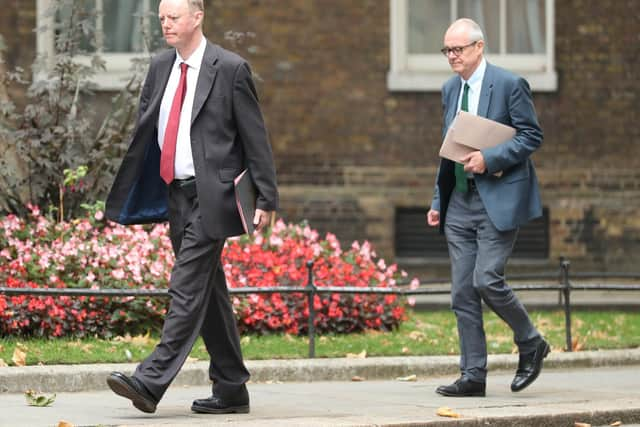'You’re taking a risk on behalf of everybody else' - Curb on unnecessary social contact could be needed to stop Covid spread
Professor Chris Whitty, the Chief Medical Officer, and Sir Patrick Vallance, the Chief Scientific Advisor, warned this morning that there could be 50,000 coronavirus cases per day next month if the rate of the disease’s spread is not brought down.
“At the moment we think the epidemic is doubling roughly every seven days,” Sir Patrick said.
Advertisement
Hide AdAdvertisement
Hide Ad“If, and that’s quite a big if, but if that continues unabated and this grows doubling every seven days… if that continued you would end up with something like 50,000 cases in the middle of October per day.


“50,000 cases per day would be expected to lead a month later, so the middle of November say, to 200-plus deaths per day.
“The challenge therefore is to make sure the doubling time does not stay at seven days.”
While Prof Whitty warned the country to brace for a tough winter.
Advertisement
Hide AdAdvertisement
Hide AdTheir intervention comes as ministers meet to decide on the next steps and whether new restrictions are needed, with an announcement from the Prime Minister expected tomorrow.
Prof Whitty said: “You cannot in an epidemic just take your own risk, unfortunately you’re taking a risk on behalf of everybody else. It’s important that we see this as something we have to do collectively.”
He said the four things to do are reducing individual risk by washing hands and using masks, quarantine measures, and investing in vaccines and drugs.
“The third one, and in many ways the most difficult, is that we have to break unnecessary links between households because that is the way in which this virus is transmitted,” he said.
Advertisement
Hide AdAdvertisement
Hide Ad“And this means reducing social contacts whether they are at work, and this is where we have enormous gratitude to all the businesses for example who have worked so hard to make their environments Covid-secure to reduce the risk, and also in social environments.
“We all know we cannot do this without some significant downsides.
“This is a balance of risk between if we don’t do enough the virus will take off – and at the moment that is the path we’re clearly on – and if we do not change course we are going to find ourselves in a very difficult problem.”
He added: “This is a six month problem that we have to deal with collectively. This period over the next six months we have to take this collectively very seriously.”
Comment Guidelines
National World encourages reader discussion on our stories. User feedback, insights and back-and-forth exchanges add a rich layer of context to reporting. Please review our Community Guidelines before commenting.